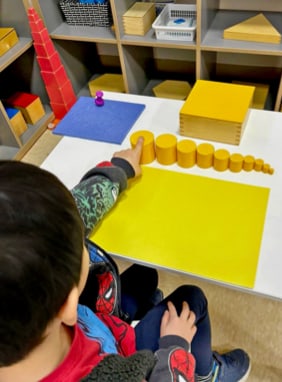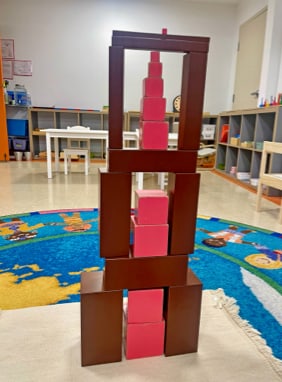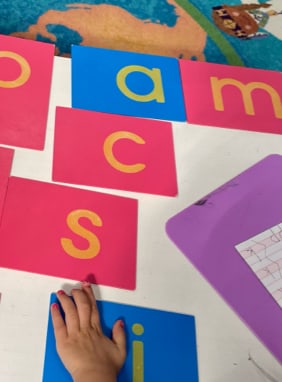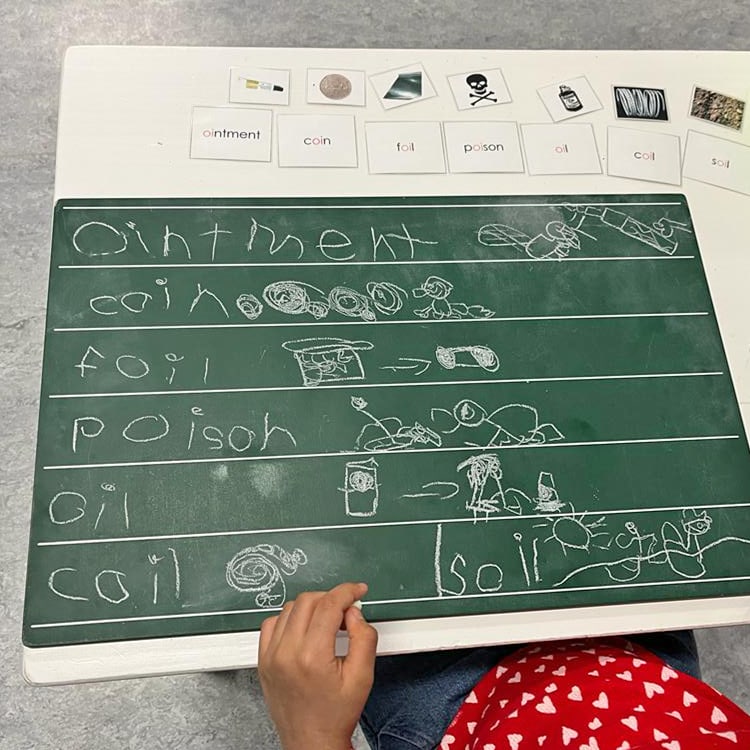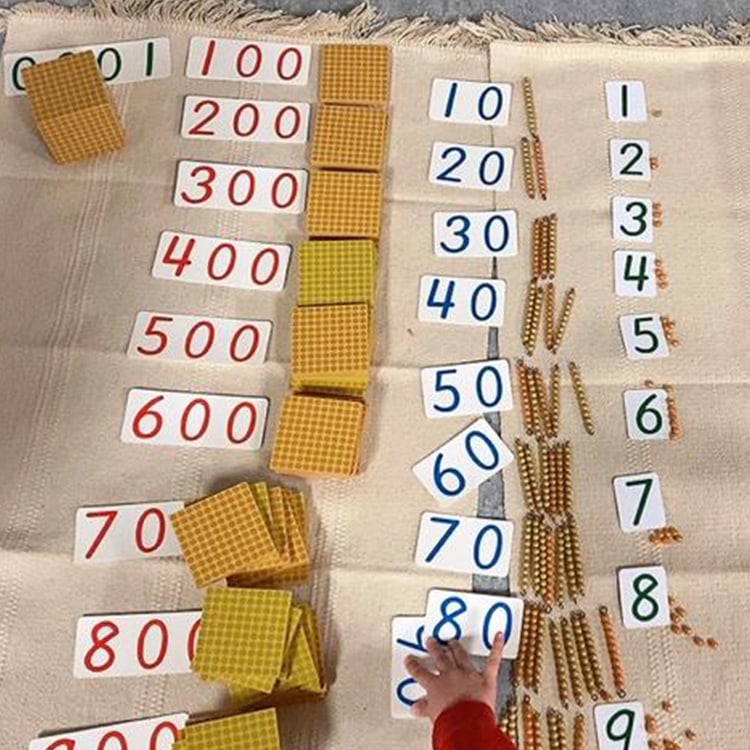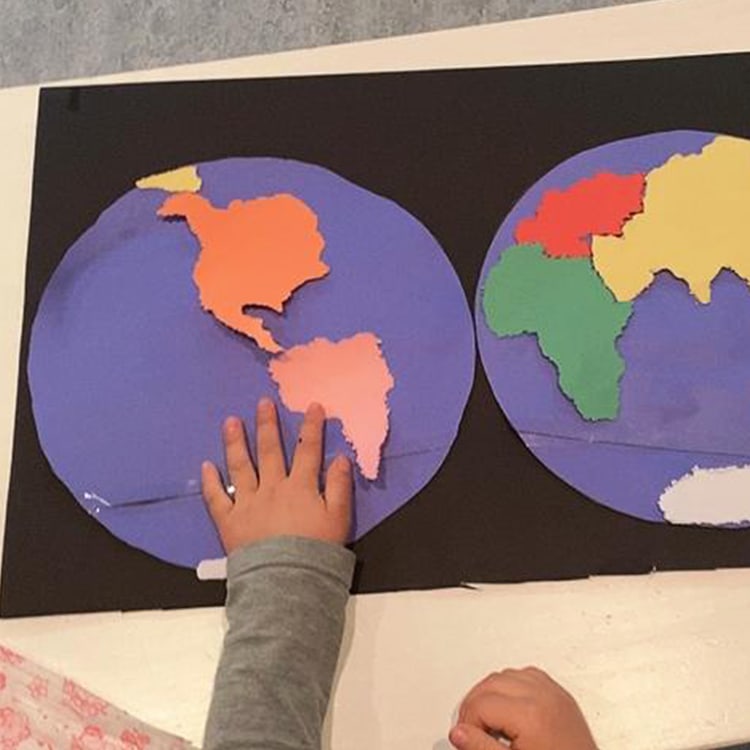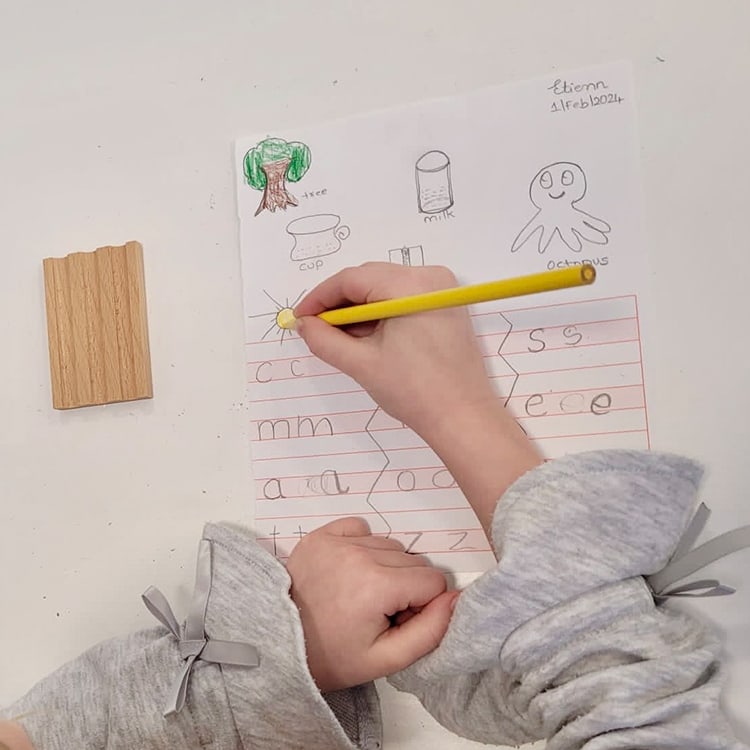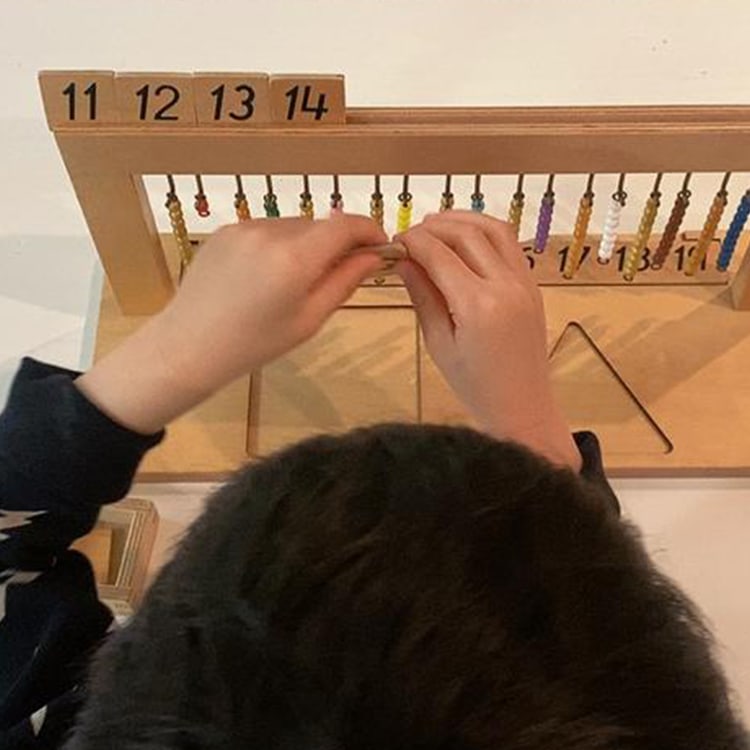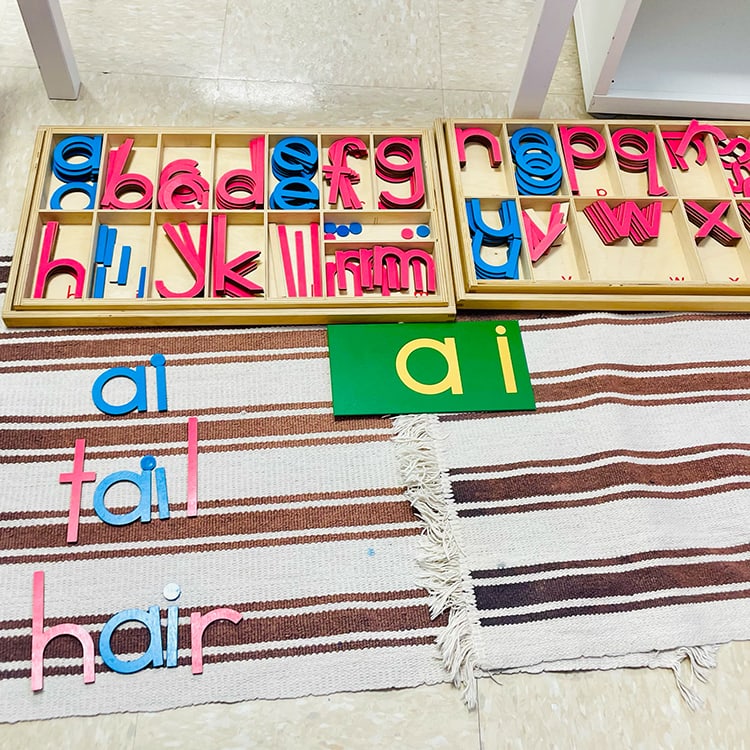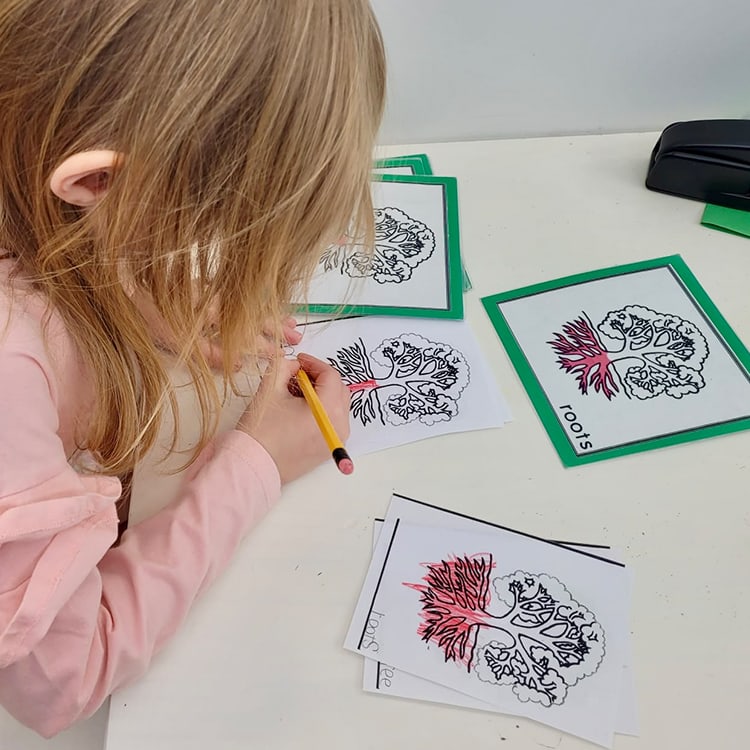Discipline — it’s one of the earliest principles we learn as children. Discipline is important in any social environment no matter what your age, but there are many different ways to apply and encourage it. Montessori classrooms take a balanced approach to discipline that might be a little different from your parents’ school days.
Let’s take a look at how Montessori Academies treat discipline and why we use it as a learning tool for developing young minds. If you have any specific questions about your child’s fit at Montessori, please contact our campus for more information.
Applying the Montessori Method
To fully understand how discipline is introduced and taught in a Montessori environment, we need to understand and acknowledge the principles of the Montessori Method. This method was developed by Maria Montessori and serves as the founding philosophical framework of a Montessori Academy.
- Respect for self, peers, and teachers
- Independence and independent problem-solving
- Respect for our environments
- Freedom within limits
- Self-discipline and self-motivation
- Respect for knowledge and the process for acquiring it
Connecting Montessori Principles & Discipline
The principles of the Montessori Method can all be applied to the way that discipline is inspired in the classroom. All interactions in a Montessori school can be traced back to these foundational pillars. Discipline is maintained by:
- Nurturing respect for self, peers, and the environment to help promote empathy and help the child understand their impact upon others.
- Encouraging independence and ownership of decisions so that children can feel responsible for their own disciplined choices.
- Allowing freedom within limits, which allows children to understand the consequences of their behaviours and decisions, and the benefits of being disciplined.
Debunking the Myth
There is some misinformed discussion that Montessori classrooms are a sort of lawless environment with no rules. This is simply not true. While there are no dunce caps or teachers screaming, a Montessori learning environment allows freedom within set parameters for our young learners. And these parameters grow as the child develops, mirroring the capabilities of each age group.
The Montessori Method encourages discipline from within, but if a child’s behaviour is harmful to themselves or others it will never be permitted. Discipline is an important part of the Montessori classroom, even if the methods seem unconventional compared to a traditional school.
Promoting Self-Discipline from Within
Many of us grew up with a very top-down strategy for instilling discipline. Let’s call it the “because I said so” method. In some conventional learning spaces, discipline is administered as a tool of authority and not at all as a collaborative process. Research suggests this can lead to rebellious and disruptive behaviour.
Rather than imposing discipline on a young learner, Montessori teachers help coach children in being responsible, self-disciplined individuals who benefit from their own decision-making. Some key elements that guide a child through this process.
Self-Care Leads to Self-Discipline
The value of self-care can be nurtured at a young age to communicate how our actions influence the way we feel. One of the most important aspects of a Montessori class is that each child develops a sense of pride in their work and their attitudes. A child experiences a sense of accomplishment when completing a task or focusing on an activity and can recognize pride as a unique emotion.
In a Montessori class, a child begins to understand that self-discipline helps them complete activities and feel pride. And this is positively reinforced by the teacher.
Empathy has been shown to occur in children around the age of 2 years old. A Montessori education fosters the idea of self-care to extend it to those around us and our environments. Allowing children to learn that disciplined decisions make both them and their peers feel better, is an effective way to promote a healthy relationship between self-care and self-discipline.

Communicating Cause & Effect
One of the ways that discipline is maintained in a Montessori class is with clear language and outcomes surrounding cause and effect. Rather than delivering orders, a Montessori teacher will explain the benefits and negatives of a certain decision. The child is allowed independence in their decision-making and will experience the outcomes of their choices.
For example, if a child wishes to change activities during a work session they may be asked to put away the previous activity. Rather than telling a child, “put away your things”, the child will be told, “if you put away the activity, then you can work on something new.” The goal is to help the child understand the consequences of their actions and that there are associated rewards with each decision.
Rather than a power struggle between teacher and child, the environment promotes critical thinking for each young learner. Children begin to understand that self-discipline allows them to attain the things they enjoy most. And that making positive decisions leads to ownership of rewards and outcomes.
Balancing Freedom & Discipline
Montessori learning environments provide lots of freedoms for each child. Freedom to choose activities in our prepared classrooms and the freedom to choose when and where to work. All of the materials in a classroom have been curated to suit the age group and size of each class. Classrooms are rich in materials designed to promote critical thinking, teamwork, and problem-solving skills.
This type of independence allows each child to maximize their fulfillment each day. And it allows them to become fully responsible for their own decisions. Children learn that their independence grows as does their self-discipline. And that building trust through responsibility and self-discipline allows them greater and greater freedoms.
A Montessori class is maintained through harmony between teachers and children, rather than law and order that a young learner may not understand.
A Healthy, Happy Learning Space
Later in life, discipline and responsibility become our own decisions. A Montessori classroom seeks to help children understand this truth early in life. The methods of maintaining discipline at a Montessori Academy are designed to better prepare the child for lifelong responsibility for their own decisions.
Simply put, the principle of self-discipline is considered one of the best ways to maintain discipline in the classroom. But always within the limits and parameters set out by the teacher. Maria Montessori believed that the role of a teacher and school is to unlock the potential that a child holds by guiding their inner inquisitive spirit. If your child can benefit from a more progressive learning space, please take a look at our enrollment process.
“Let us always remember that inner discipline is something to come, not something already present. Our task is to show the way to discipline.”
-Maria Montessori







